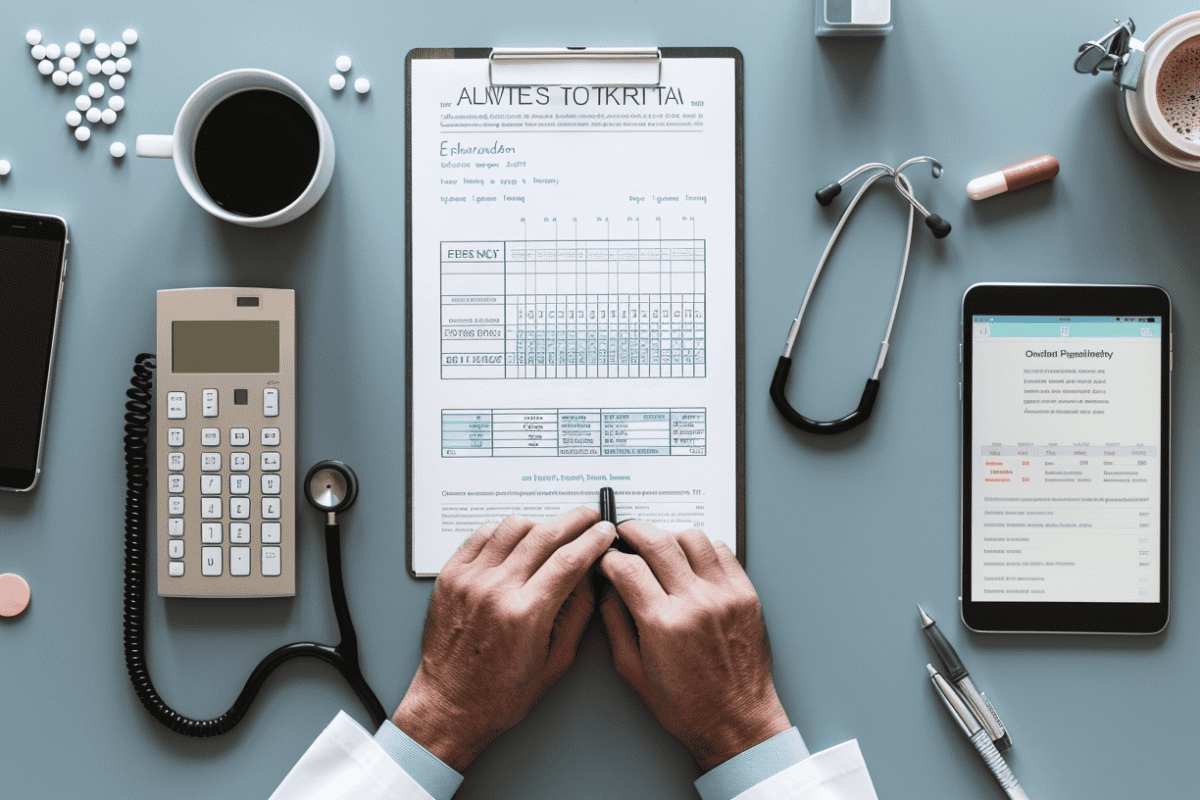Have you ever looked at historical accounts of medical practices? Reading some of them conjures nightmare-worthy stuff. Imagine people holding down a patient during surgery. The poor patient would not have any anesthesia to numb the pain. And, all the doctor had was rudimentary tools to work with.
A chronology of medical technology shows magnifying glasses came in 1250. The stethoscope came into being in 1815. It wasn’t until 1841 that anesthesia entered the operating rooms.
Since then, there have been major astounding advances in technology. These have made significant changes in patient care and management. Today, doctors can perform non-invasive surgeries. Data collection and management are easy with technology.
It is possible for patients to get remote care, thus major improvement in health access. Clinic management software has revolutionized administration and patient relationships.
Our article explores the benefits of software development in the medical industry.
Better Processes in the Medical Industry
Technology has taken over tasks that humans would take a long time to do. Simple spreadsheets make it easy to collect and manage patient information. The same applies to keeping track of inventory and other logistical processes.
Investing in clinic software has far-reaching impacts on the business. The most obvious would be the automation of tasks like note-taking or admin work. But there is more. Higher efficiency means patients have a better experience with the providers.
Practitioners can use the clinic management software to educate patients. It allows the latter to take better care of their health. Patients become active participants in the whole process instead of silent bystanders.
Real-time analytics from the clinic management software provides insights for improving the practices. It becomes easy to identify what is not working and improve upon it.
Indeed better streamlining of processes will result in higher productivity. All these will have a positive impact on the business’s bottom line.
Better Patient Care
- It will be hard to pinpoint any area in healthcare that has not seen the benefit of technology. These range from diagnostics, treatments, aftercare and disease prevention. Innovations like: – Wearable devices have improved the monitoring of patient conditions. A doctor can receive an alert when there is cause for concern.
- AI and robotics have become a critical component in surgeries
- Virtual reality has become a critical tool for medical training
- 3D printing creates implants for use in surgeries
- Precision medicine allows for personalized health based on an individual’s specific health needs.
- Telemedicine has improved remote access to healthcare services.
- Clinic software management help with admin work, patient relationships, engagement and education
Better Security with Cloud Storage
Think about how healthcare providers would store patient data. All the information would go into physical files prone to theft or damage. Thanks to tech developments that is no longer the case.
Technologies like cloud storage have improved data security. You can store huge amounts of data and assign access privileges to a chosen few. Cloud storage providers ensure enhanced security features to counter cyber-attacks.
There is better access to information with cloud storage. Healthcare professionals don’t have to be in a specific location to get information. All you need is an internet-connected device and access permission. Quick access to information can be the difference between saving and losing a life.
With cloud storage, there is no need to move from one location to another with documents. That in itself is a critical safety precaution. Imagine carrying confidential patient files in a briefcase. Now, all the practitioner does is log into a secure portal and retrieve whatever they need. They can also edit or add information with ease.
Practitioners invest in such technologies because protecting patient information is critical. Medical industry regulations like HIPPA, PHI or HITECH need this. But, they also know that the cost of medical malpractice suits can hurt their practices.
Better Collaboration amongst Healthcare Specialists
Technology has led to better collaboration amongst specialists to the benefit of patients. Collaboration comes in the form of research, knowledge sharing, training and more.
Best of all, geographical boundaries no longer matter. A doctor in America could collaborate with a counterpart in Africa. Yet, they don’t ever have to be in one physical space together.
Better Data Management
We talked about physical files above. Imagine a doctor needing urgent information during a medical procedure. But he has to wait until the clerk goes to the file room to retrieve the relevant file.
We also can’t forget the possibility of human error in manual data management. Electronic medical/health records and clinic software management are a big help.
Health care providers can customize the software to fit their specific requirements. Management of patient information becomes a breeze. There is easy access to information even from remote locations with cloud technology.
Bridging the Gaps in Health Care Access
Patients no longer need to traverse the globe in search of medical care. Diagnosis and treatment, for example, can happen via video conferencing. Mobile applications allow for greater connectivity between healthcare workers and patients.
Voice calls, instant messaging or video conferencing bridge that gap in access. The impact of mobile technology has been especially significant in developing countries.
Many people succumb to treatable diseases due to an inability to reach hospitals. But now, drones can deliver medication to hard-to-reach areas. Health care providers can use mobile kits to deliver services and more.
Health Education with Technology
Technology has led to a more educated population. Patients can get health education through the internet, educational videos and patient portals. With greater awareness comes better healthcare management.
Physicians see the value in patients having better knowledge about their health. Many are adapting the use of clinic management software to educate and engage. A survey of 200 American physicians confirmed this. 95% use mobile apps, tablets and waiting room screens for such purposes.
Final Thoughts
Software development has had a significant impact on all industries. And the medical industry is one of the main beneficiaries.
Patient care is much better. Clinic management software can help with streamlining workflows. There is better collaboration, engagement and education, and much more. And if the trends are anything to go by, we can expect more thanks to software development.
This is a sponsored post
Digital Health Buzz!
Digital Health Buzz! aims to be the destination of choice when it comes to what’s happening in the digital health world. We are not about news and views, but informative articles and thoughts to apply in your business.


